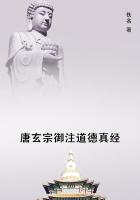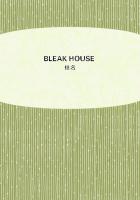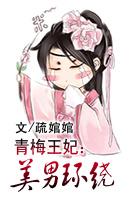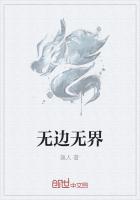EXCEPT for politics, Mount Vernon Street had the merit of leaving the boy-mind supple, free to turn with the world, and if one learned next to nothing, the little one did learn needed not to be unlearned. The surface was ready to take any form that education should cut into it, though Boston, with singular foresight, rejected the old designs. What sort of education was stamped elsewhere, a Bostonian had no idea, but he escaped the evils of other standards by having no standard at all; and what was true of school was true of society. Boston offered none that could help outside. Every one now smiles at the bad taste of Queen Victoria and Louis Philippe -- the society of the forties -- but the taste was only a reflection of the social slack-water between a tide passed, and a tide to come. Boston belonged to neither, and hardly even to America. Neither aristocratic nor industrial nor social, Boston girls and boys were not nearly as unformed as English boys and girls, but had less means of acquiring form as they grew older.
Women counted for little as models. Every boy, from the age of seven, fell in love at frequent intervals with some girl -- always more or less the same little girl -- who had nothing to teach him, or he to teach her, except rather familiar and provincial manners, until they married and bore children to repeat the habit. The idea of attaching one's self to a married woman, or of polishing one's manners to suit the standards of women of thirty, could hardly have entered the mind of a young Bostonian, and would have scandalized his parents. From women the boy got the domestic virtues and nothing else. He might not even catch the idea that women had more to give.
The garden of Eden was hardly more primitive.
To balance this virtue, the Puritan city had always hidden a darker side. Blackguard Boston was only too educational, and to most boys much the more interesting. A successful blackguard must enjoy great physical advantages besides a true vocation, and Henry Adams had neither; but no boy escaped some contact with vice of a very low form. Blackguardism came constantly under boys' eyes, and had the charm of force and freedom and superiority to culture or decency. One might fear it, but no one honestly despised it. Now and then it asserted itself as education more roughly than school ever did. One of the commonest boy-games of winter, inherited directly from the eighteenth-century, was a game of war on Boston Common.
In old days the two hostile forces were called North-Enders and South-Enders.
In 1850 the North-Enders still survived as a legend, but in practice it was a battle of the Latin School against all comers, and the Latin School, for snowball, included all the boys of the West End. Whenever, on a half-holiday, the weather was soft enough to soften the snow, the Common was apt to be the scene of a fight, which began in daylight with the Latin School in force, rushing their opponents down to Tremont Street, and which generally ended at dark by the Latin School dwindling in numbers and disappearing.
As the Latin School grew weak, the roughs and young blackguards grew strong.
As long as snowballs were the only weapon, no one was much hurt, but a stone may be put in a snowball, and in the dark a stick or a slungshot in the hands of a boy is as effective as a knife. One afternoon the fight had been long and exhausting. The boy Henry, following, as his habit was, his bigger brother Charles, had taken part in the battle, and had felt his courage much depressed by seeing one of his trustiest leaders, Henry Higginson -- "Bully Hig," his school name -- struck by a stone over the eye, and led off the field bleeding in rather a ghastly manner. As night came on, the Latin School was steadily forced back to the Beacon Street Mall where they could retreat no further without disbanding, and by that time only a small band was left, headed by two heroes, Savage and Marvin.
A dark mass of figures could be seen below, making ready for the last rush, and rumor said that a swarm of blackguards from the slums, led by a grisly terror called Conky Daniels, with a club and a hideous reputation, was going to put an end to the Beacon Street cowards forever. Henry wanted to run away with the others, but his brother was too big to run away, so they stood still and waited immolation. The dark mass set up a shout, and rushed forward. The Beacon Street boys turned and fled up the steps, except Savage and Marvin and the few champions who would not run. The terrible Conky Daniels swaggered up, stopped a moment with his body-guard to swear a few oaths at Marvin, and then swept on and chased the flyers, leaving the few boys untouched who stood their ground. The obvious moral taught that blackguards were not so black as they were painted; but the boy Henry had passed through as much terror as though he were Turenne or Henri IV, and ten or twelve years afterwards when these same boys were fighting and falling on all the battle-fields of Virginia and Maryland, he wondered whether their education on Boston Common had taught Savage and Marvin how to die.
If violence were a part of complete education, Boston was not incomplete.
The idea of violence was familiar to the anti-slavery leaders as well as to their followers. Most of them suffered from it. Mobs were always possible.
Henry never happened to be actually concerned in a mob, but he, like every other boy, was sure to be on hand wherever a mob was expected, and whenever he heard Garrison or Wendell Phillips speak, he looked for trouble. Wendell Phillips on a platform was a model dangerous for youth. Theodore Parker in his pulpit was not much safer. Worst of all, the execution of the Fugitive Slave Law in Boston -- the sight of Court Square packed with bayonets, and his own friends obliged to line the streets under arms as State militia, in order to return a negro to slavery -- wrought frenzy in the brain of a fifteen-year-old, eighteenth-century boy from Quincy, who wanted to miss no reasonable chance of mischief.















